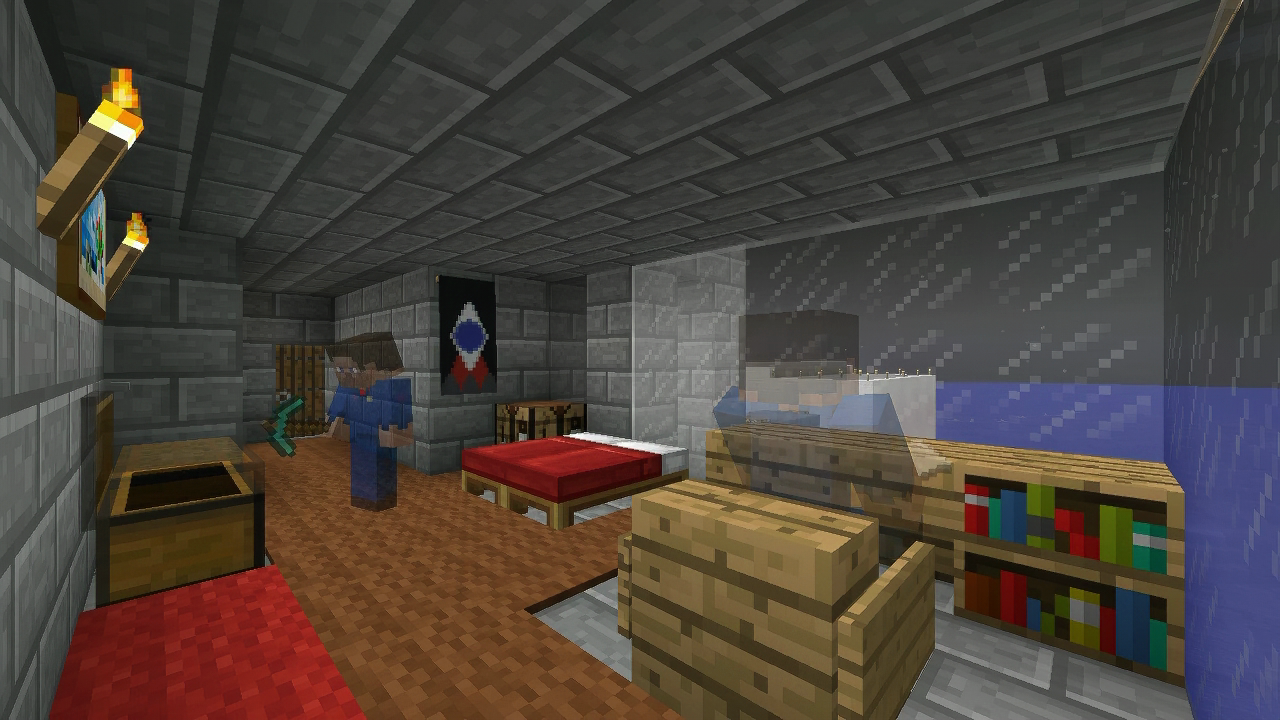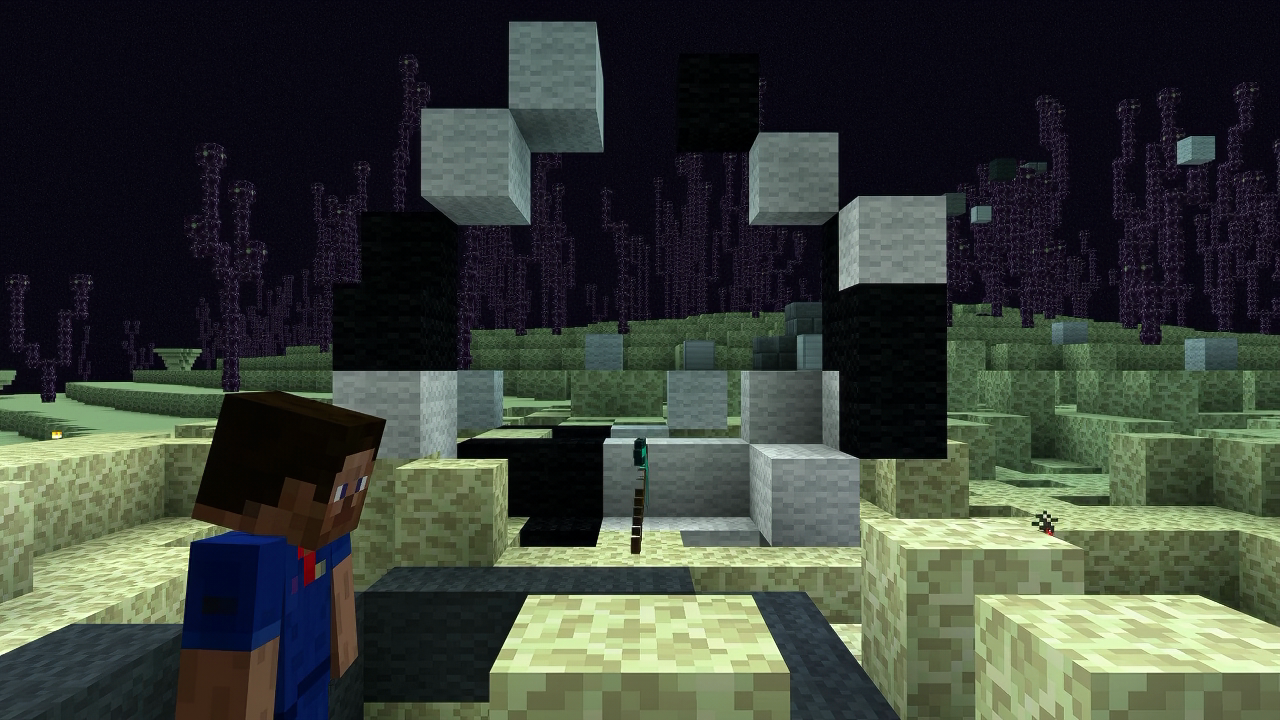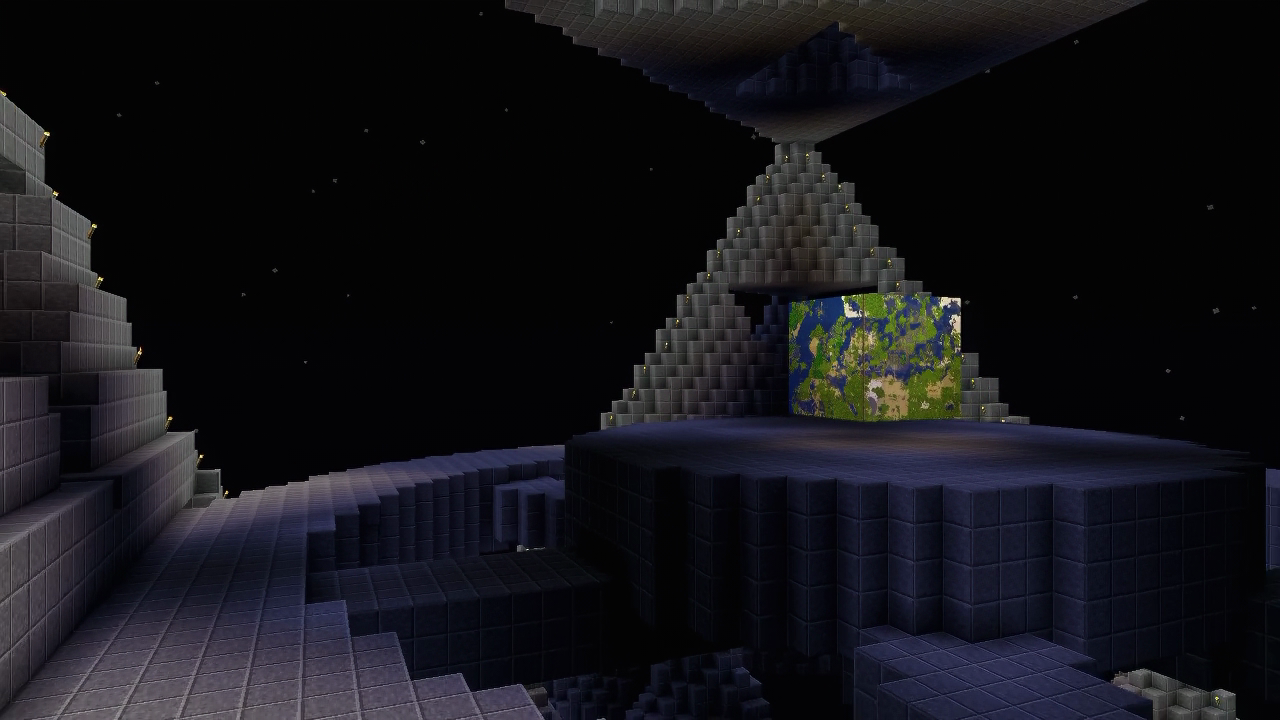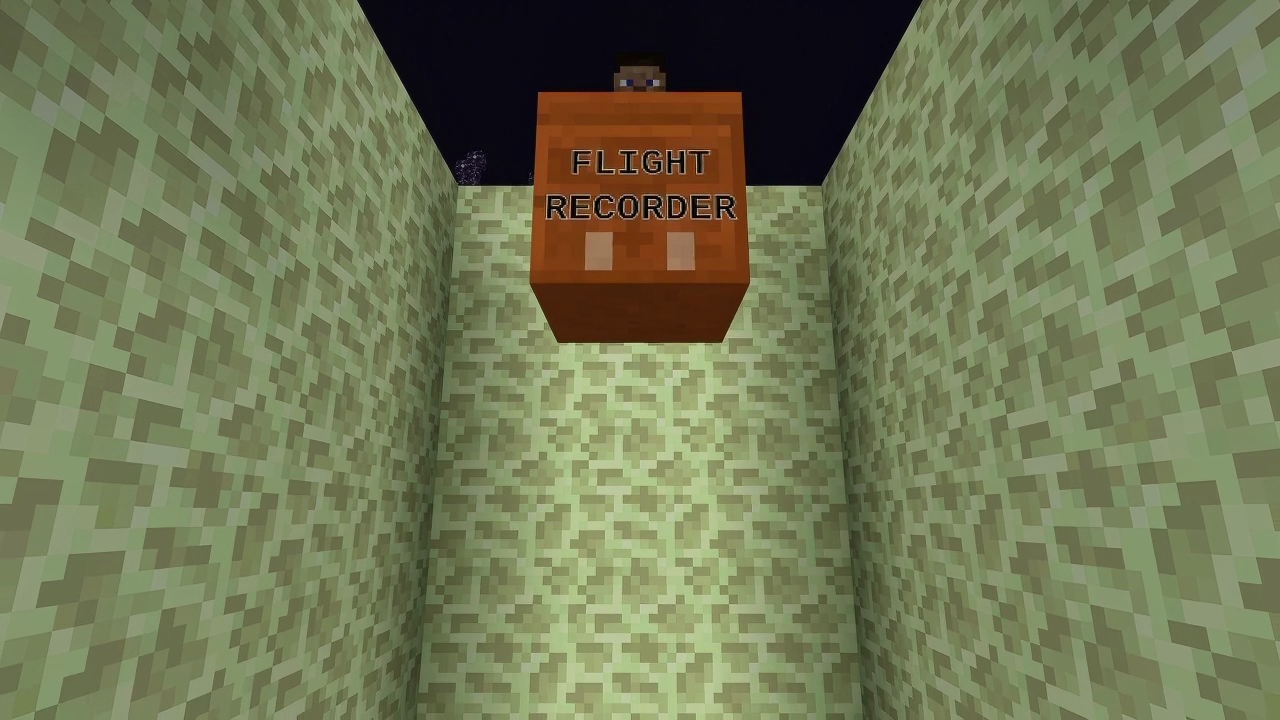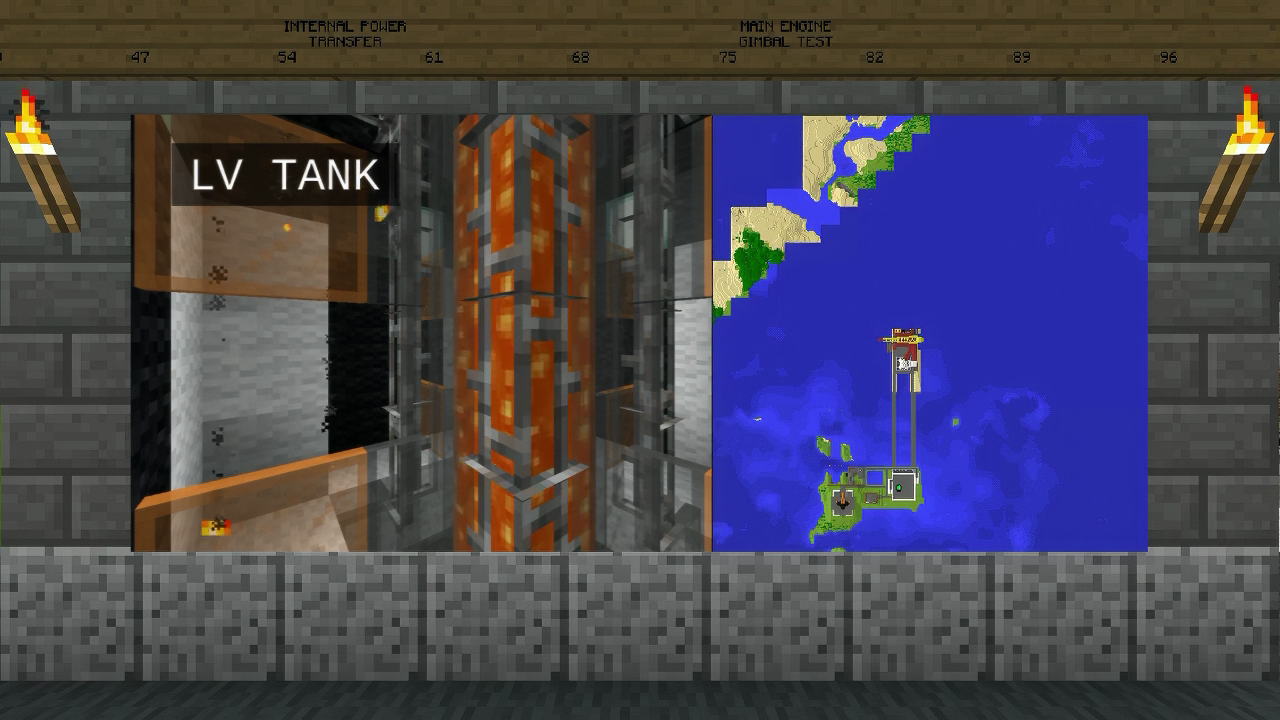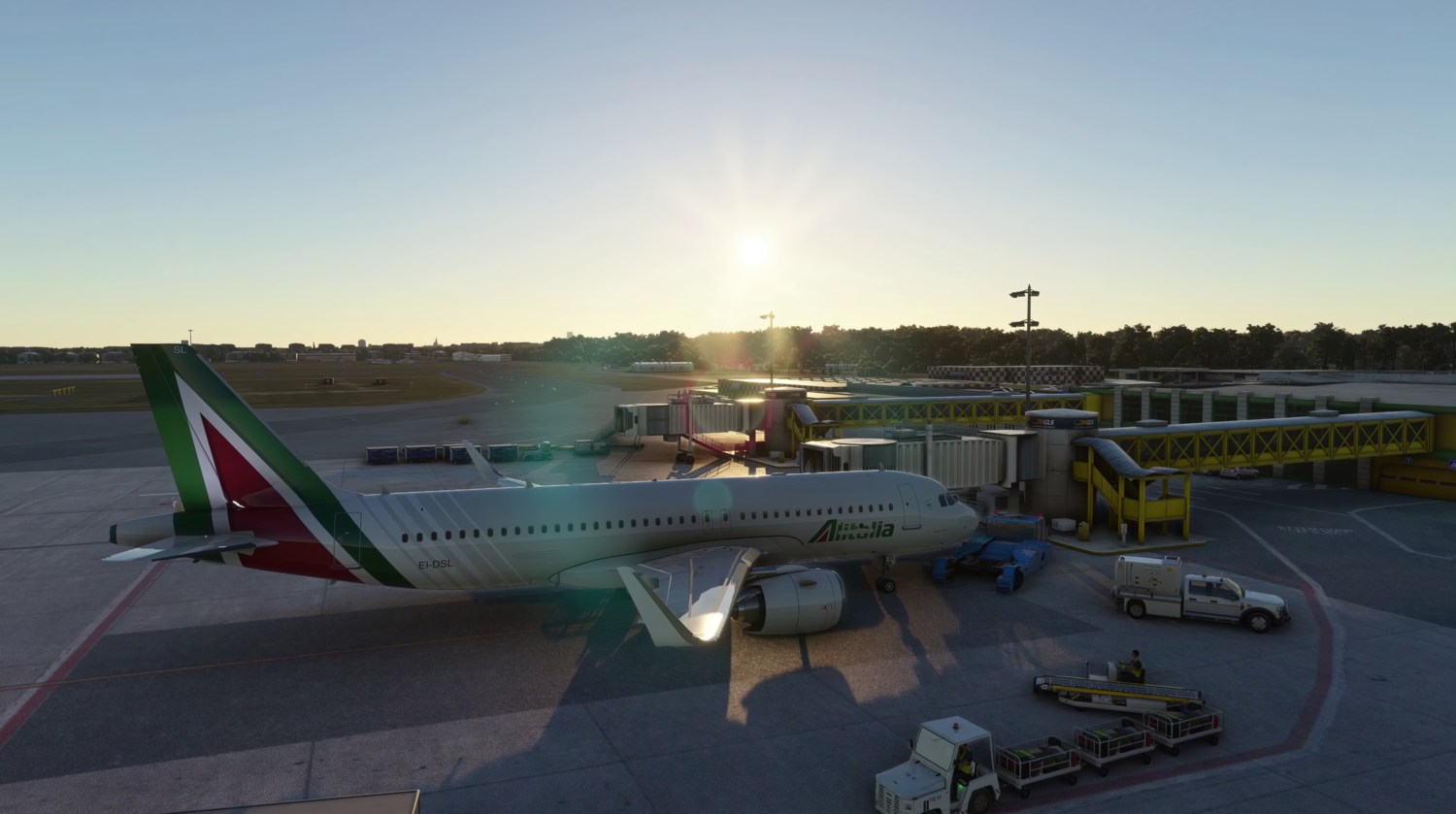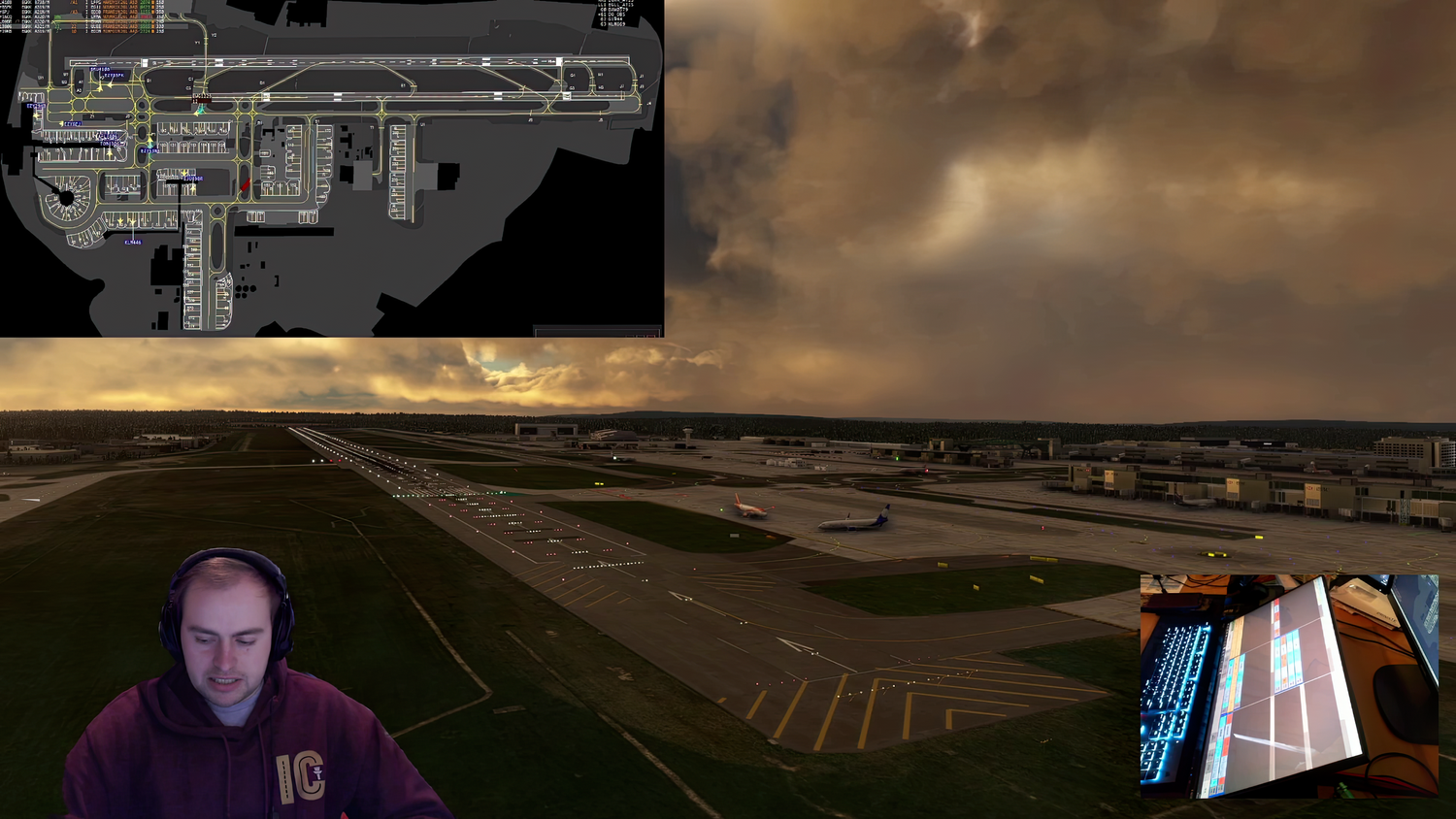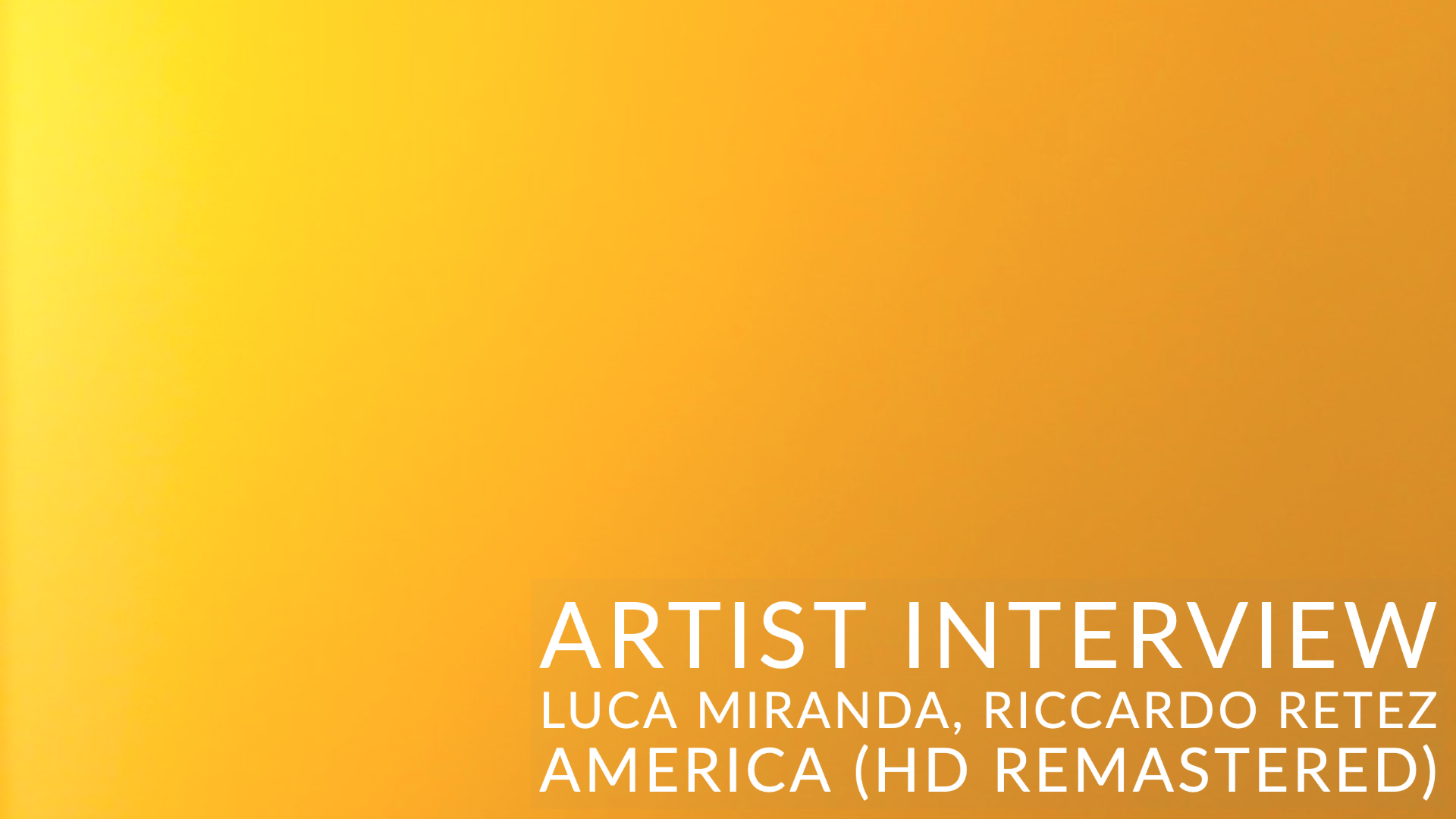PATREON-EXCLUSIVE CONTENT
〰️
PATREON-EXCLUSIVE CONTENT 〰️
The Milan Machinima Festival is proud to present Colin Stagner's new machinima Pictures of an Exhibition, which invites viewers to embark on a thought-provoking journey through space within Minecraft. Divided into three movements, each accompanied by classical music, this machinima delves into traditional cinematic themes of innovation, tribulation, and contemplation against the cosmic backdrop of outer space.
In his explorations of the conventions and relationships between coding, film, and game design, Colin Stagner seeks to comprehend how the digital realm engenders our lived reality. Hailing from the heartland of the United States, Stagner's practice is one of technological experimentation, with a focus on uncovering the hidden mechanisms that undergird the digital. While some may be tempted to categorize Stagner as an artist, he resists such a label, instead identifying himself as a software engineer who uses his skills to probe the limits of what is possible within the coded world. By drawing on his deep understanding of programming languages and their potential applications, Stagner creates works that challenge our preconceived notions of what is possible in the world of technology.
Riccardo Retez talked to Colin Stagner about Pictures of an Exhibition:
Riccardo Retez: Inquiring into the nature of machinima as a creative practice, I am compelled to ask: what inspired your engagement with this unique medium? Before I delve into the intricacies of your recent work, Pictures of an Expedition, could you describe your personal relationship with machinima? How do you conceptualize this technique, and what purpose does it serve in your artistic vision? Put simply, what is the significance of designing, producing, and ultimately releasing a machinima for you as an artist?
Colin Stagner: My first introduction to machinima was courtesy of the early episodes of Red vs. Blue (Burns, 2003). To produce any film, it is necessary to convince the viewer that the limitations of the medium form a “reality” of sorts. While some films lack sound or color, machinima directors are forced to accept more unusual limitations. In Red vs. Blue, every character must always wear a helmet and hold a weapon. The series embraces these absurdities and plays them for laughs. Interesting constraints make for interesting art.
In an odd but narratively convenient coincidence, I was first introduced to my chosen medium, Minecraft (Mojang, 2010), through machinima. In addition to numerous demo videos, I also recall watching music machinima such as In Search of Diamonds (Dead Worker’s Party, 2010) and others which have been lost to time. These convinced me that the game was worth playing.
At that time, in 2011, I had absolutely no idea that I was going to make a film.
As a software engineer by trade, my only formal education in movie-making was a “Films Appreciation” course from my undergrad years. That and, I suppose, all the films I had ever seen. As this project has taught me, machinima is a uniquely accessible medium for film. There is no need to perfect the kinesthetics of performance or the technical details of sound and image capture. Reducing these barriers expands the range of possible contributors – more artists, more art. The challenge, beyond the physical act of doing, is to create a work that complements or transcends the original “text” of the game and forms a meaningful connection with its audience.
Riccardo Retez
Works cited
Colin Stagner
Pictures of an Expedition
digital video/machinima, color, sound, 6’ 07”, 2022, United States of America
This is a Patreon exclusive article. To access the full content consider joining our Patreon community.

